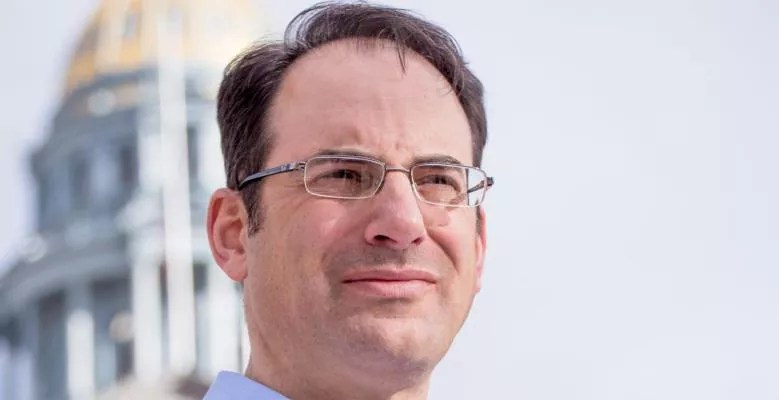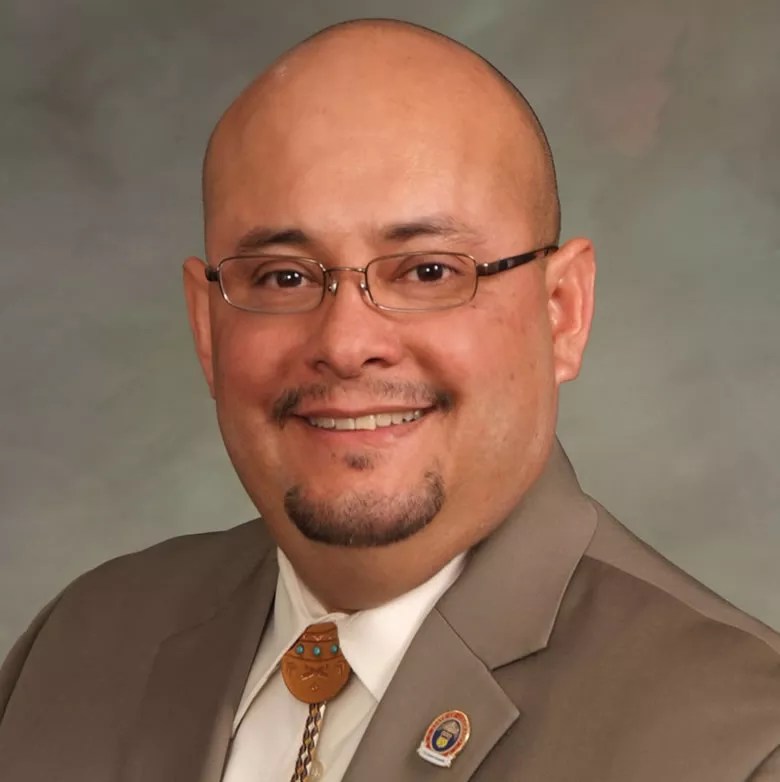
Phil Weiser

Audio By Carbonatix
Today, June 26, is the last day for Coloradans to cast their ballots in the primary elections, and Democrats will have two choices for attorney general, which is one of the most powerful elected positions in the state.
The powers-that-be in the Democratic party have lined up behind former University of Colorado Boulder law school dean Phil Weiser, including Governor John Hickenlooper, who threw his endorsement behind him last week. Weiser’s campaign fundraising machine – with the help of people like Ken Salazar, one of the most powerful Democrats in the state, who hosted a private fundraiser for Weiser at his home – raised more than $1.4 million for the primary election. But little has been said on the campaign trail about his litigation experience.
Weiser has only ever been involved in seven court cases in the 24 years since passing the bar exam in New York. His campaign has tried to avoid directly addressing his relative lack of courtroom litigation, instead playing up his diverse range of legal experience.
All of his cases were argued in the Tenth Circuit or Second Circuit Court of Appeals. In one case, he filed what’s called an amicus curiae brief to voluntarily advise the court on a case where two beauty-supply companies were each directed by a trial judge to pay the jury cost – about $203 each – since neither party gave enough advance notice for the court to cancel the trial date.

Joseph Salazar is Weiser’s Democratic challenger in the primary race.
Courtesy Joseph Salazar
On three other occasions, Weiser represented prisoners in their appellate-court cases while serving as a law professor at the University of Colorado Boulder: a Muslim man in Oklahoma who was fighting significant restrictions on possessing prayer oils, a Japanese man in a Colorado maximum security penitentiary who was denied a pastoral visit from a Methodist minister because he had previously identified himself as Buddhist, and a convicted pedophile (also in Oklahoma) who was engaged in lengthy litigation with the state over a miscalculation of his “good-time credits” for his early release from prison.
The final three cases he represented were during his ten-month stint as the deputy assistant attorney general in the antitrust division of the U.S. Department of Justice between 2009 and 2010, including an intellectual-property dispute between Yahoo! and the American Society of Composers, Authors and Publishers; a battle between a railway company and the town of Babylon, New York, over a local zoning ordinance; and allegations that Bayer Corporation was illegally paying off generic competitors so they wouldn’t challenge its patent on the antibiotic ciproflaxacin. (In the latter case, Weiser and a team of DOJ lawyers briefed the court on the United State’s position on antitrust law and legal precedent.)
When pressed about his qualification for office given that he’s only handled a handful of cases in his career, Weiser’s campaign had this to say:
Phil is proud of the courtroom litigation he has personally led and participated in. He is also proud of his record in those many areas that the AG works in that do not involve courtroom litigation: drafting and enforcing regulations, advising agencies on legal questions, and negotiating contracts and agreements.
But to be clear, the Attorney General’s main role is not to serve as a courtroom trial lawyer or to personally handle front-line cases. In fact, as best as our research can tell, no sitting Colorado AG has personally tried a case since the 1860’s.
The AG’s primary role is to serve as manager and executive of an office of 500 people and 300 lawyers. The core of this role is providing direction and making strategic decisions to the largest legal team in Colorado. Therefore, an effective Attorney General needs seasoned executive experience leading a large organization. Phil has just that experience.
Phil has spent almost his entire career in public service as the executive and manager of large teams of lawyers and staff. In Barack Obama’s Justice Department, Phil managed dozens of lawyers in deciding what cases to bring and supervising how they were litigated. This work of evaluating cases at the trial and appeals level is exactly what Colorado’s AG does. Later, in the Obama White House, Phil was the supervisor of a team of dozens of professionals working to change our laws and regulations on wireless spectrum, spearheading an initiative to bring broadband to rural America and to help first responders. And as Dean of CU Law School, Phil served as executive and manager of one of our state’s largest legal institutions, including a faculty, staff, and student body of hundreds.
In sum, Phil has spent his career as the manager or executive of large legal teams, and his proven record in each of these roles shows he is the right choice for Attorney General.
Does Weiser’s courtroom litigation experience (or lack thereof) make him less qualified for the job? Floyd Ciruli, who heads up the Crossley Center for Public Opinion Research at the University of Denver, says not necessarily.
“My view of the attorney general’s office is that the most important thing, what you are essentially doing is managing a very large, complex law firm. There is some courtroom activity, but mainly agency work. You’re representing agencies, [and] you attend innumerable meetings. And probably, if you do litigation, it’s often appellate litigation,” Ciruli says.
Weiser isn’t the only attorney general candidate in Colorado to run for office with little to no courtroom track record. Cynthia Coffman, the state’s current attorney general, who unsuccessfully campaigned for governor this year, never represented a single client in court prior to becoming attorney general in 2015, according to a nationwide search of federal and state cases. She did, however, have nearly twenty years of public-service experience in Colorado, including as a nonpartisan research staffer at the Office of Legislative Counsel at the Capitol, as general counsel for Governor Roy Romer, and as the chief deputy attorney general under her predecessor, John Suthers, before finally winning elected office.
Former attorney general Salazar, who served from 1999 to 2004, had fewer court cases under his belt than Weiser prior to assuming elected office. But Salazar was one of the attorneys on the Keyes v. School District No. 1 (Denver Public Schools) case in the ’80s to fight to maintain federal court supervision over the district’s implementation of its desegregation plan that the U.S. Supreme Court ordered in a landmark case more than a decade earlier. He later joined Governor Roy Romer’s office as chief legal counsel before being appointed as the executive director of the Department of Natural Resources in 1990. Four years later, he went into private practice in water, environmental and public-lands policy work, then jumped into the attorney general race in 1998.
And former attorney general Gale Norton, who served from 1991 to 1999, had litigated eight cases as a senior attorney for the Mountain States Legal Foundation between 1979 and 1984. She transitioned to public policy as the assistant to the deputy secretary of the U.S. Department of Agriculture and then as the associate solicitor at the U.S. Department of the Interior before being elected as the first female Colorado attorney general. John Suthers, who served from 2005 to 2015, had extensive litigation experience prior to his candidacy. He was the district attorney in Colorado Springs and later served as the U.S. Attorney for the District of Colorado under George W. Bush before being elected to statewide office.
Weiser has a few years of experience at the DOJ, and he spent another year as a senior adviser in the Obama administration for the National Economic Council. Nearly his entire career has been spent in academia at the University of Colorado Boulder. (Check out his Linkedin profile here for a breakdown.)
His challenger, Thornton Representative Joe Salazar, has been a private practice attorney for more than ten years and focuses on employment, civil rights, constitutional and federal Indian law.
If Weiser does manage to beat out his better-known opponent, he will have to face a formidable Republican challenger in George Brauchler, who was the prosecutor in the high-profile death-penalty case of the Aurora theater shooter. He currently serves as the district attorney in Arapahoe, Douglas, Elbert and Lincoln counties, where he litigates cases and manages a team of prosecutors.